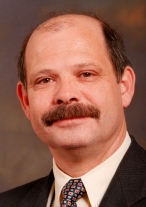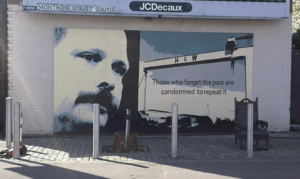David Ervine facts for kids
Quick facts for kids
David Ervine
|
|
|---|---|
 |
|
| Leader of the Progressive Unionist Party |
|
| In office April 2002 – 8 January 2007 |
|
| Deputy | David Rose |
| Preceded by | Hugh Smyth |
| Succeeded by | Dawn Purvis |
| Member of the Northern Ireland Assembly for Belfast East |
|
| In office 25 June 1998 – 8 January 2007 |
|
| Preceded by | New Creation |
| Succeeded by | Dawn Purvis |
| Member of Belfast City Council | |
| In office 21 May 1997 – 8 January 2007 |
|
| Preceded by | Jim Walker |
| Succeeded by | John Kyle |
| Constituency | Pottinger |
| Member of the Northern Ireland Forum | |
| In office 30 May 1996 – 25 April 1998 |
|
| Preceded by | Forum created |
| Succeeded by | Forum dissolved |
| Constituency | Top-up list |
| Personal details | |
| Born | 21 July 1953 Belfast, Northern Ireland |
| Died | 8 January 2007 (aged 53) Belfast, Northern Ireland |
| Nationality | British |
| Political party | Progressive Unionist Party |
| Spouse |
Jeanette Cunningham
(m. 1971) |
| Children | Mark Owen |
| Website | PUP |
David Ervine (1953–2007) was an important politician from Northern Ireland. He led the Progressive Unionist Party (PUP) from 2002 to 2007. He also served as a member of the Northern Ireland Assembly for Belfast East.
In his younger years, David Ervine was involved with a loyalist group. While in prison, he decided that political action was the best way forward. He then joined the PUP. As a key figure in the PUP, he helped bring about the loyalist ceasefire in 1994. This was a big step towards peace in Northern Ireland.
Contents
David Ervine's Early Life
David Ervine was the youngest of five children. He grew up in a working-class area of east Belfast. His family was not very political. His father, Walter, was a socialist and did not attend church.
David left school at 14. At 19, he joined a loyalist group. He felt this was the only way to protect his community. This decision came after a difficult time known as Bloody Friday. A neighbor of his had died in one of the bomb attacks that day.
Before joining the group, David tried to join the police. However, he was not accepted due to a small mistake from his childhood.
Time in Prison and New Ideas
David Ervine was arrested in 1974. He was found guilty of having explosives. He was sentenced to 11 years in prison. He spent his time in The Maze prison.
While in prison, David met Gusty Spence. Spence made David think deeply about his beliefs. This meeting changed David's path. He realized that political change was the only real solution. He also became good friends with Billy Hutchinson during this time.
After Prison: A Political Career
David Ervine was released from prison in 1980. For several years, he owned a newsagent's shop in Belfast. Later, he decided to focus on politics full-time.
He first ran for local council elections in 1985 as a PUP candidate. In 1997, he became a member of Belfast City Council. In 1998, he was elected to the Northern Ireland Assembly for Belfast East. He was re-elected in 2003.
Working for Peace: The Loyalist Ceasefire
David Ervine played a very important role in achieving the loyalist ceasefire in October 1994. This ceasefire was a major step towards ending violence.
In June 1996, he was part of a group that met with the British Prime Minister, John Major. They discussed the loyalist ceasefire at Downing Street.
The Northern Ireland Forum
In 1996, David Ervine was elected to the Northern Ireland Forum. This was a body set up to discuss the future of Northern Ireland. He was elected from a special regional list.
A Forward-Thinking Unionist
David Ervine was known as one of the most forward-thinking unionists in Northern Ireland politics. He strongly supported the Good Friday Agreement. This agreement was a peace deal for Northern Ireland. He was one of the few unionist politicians who actively supported it.
In 2001, a British government minister, John Reid, called him "one of the most eloquent politicians in Northern Ireland." David was seen by many as a politician who actively worked to resolve conflicts.
In the Northern Ireland Assembly, he was open to working with Sinn Féin. He opposed attempts by the Democratic Unionist Party (DUP) to keep Sinn Féin out of office. In 2001, he was the only unionist to vote against a motion that criticized the display of lilies. These lilies honored the 1916 Easter Rising. David also supported the right of Sinn Féin members to speak in the Irish in the Assembly.
Later, people noted that he sat next to Sinn Féin's Martin McGuinness at the funeral of football legend George Best. This showed how much Northern Ireland had changed.
Links with Ulster Unionists
In May 2006, it was announced that David Ervine would join the Ulster Unionist assembly group. He would still remain the leader of the Progressive Unionist Party. This move aimed to give the Ulster Unionists an extra place in the Northern Ireland Executive.
However, the Speaker of the Assembly, Eileen Bell, needed to check if this was allowed. In September 2006, she ruled that the alliance was not valid. This meant the Ulster Unionist Party Assembly Group did not meet the requirements to sit in the Assembly.
His Identity
David Ervine was a Protestant. He saw himself as both Irish and British. He once said, "why can't I be an Irish citizen of the UK?" He believed that he was deeply both British and Irish.
Illness and Passing
David Ervine suffered a heart attack and a stroke in January 2007. He was taken to the hospital in Belfast. He passed away on January 8, 2007. There was an early, incorrect report of his death, for which a news editor later apologized.
His funeral service was held on January 12 in East Belfast. Many important figures attended, including politicians from different parties.
Tributes to David Ervine
Many people shared their thoughts and memories of David Ervine:
- His elder brother, Brian Ervine, said: "He had the courage to climb out of the traditional trenches, meet the enemy in no-man's land and play ball with him."
- Bertie Ahern, the Irish Prime Minister, called him "a courageous politician who sought to channel the energies of loyalism in a positive political direction."
- Reg Empey described him as "a unique, charismatic and uncharacteristically spin-free politician."
- Gerry Adams said: "He made a valuable and important contribution to moving our society away from conflict."
- George J. Mitchell, a former US Senator, stated: "His legacy is that he has led loyalism out of the Dark Ages."
- Mark Durkan noted: "David emerged from a paramilitary past to pursue a peaceful future. He worked always to keep loyalism onboard for the Good Friday Agreement."
- Tony Blair, the British Prime Minister, said: "David was a man who, whatever his past, played a major part in this last 10 years in trying to bring peace to Ulster."
See also
- Unionism (Ireland)
- Progressive Unionist Party
- Ulster Volunteer Force
- Ulster Loyalist
 | Victor J. Glover |
 | Yvonne Cagle |
 | Jeanette Epps |
 | Bernard A. Harris Jr. |


